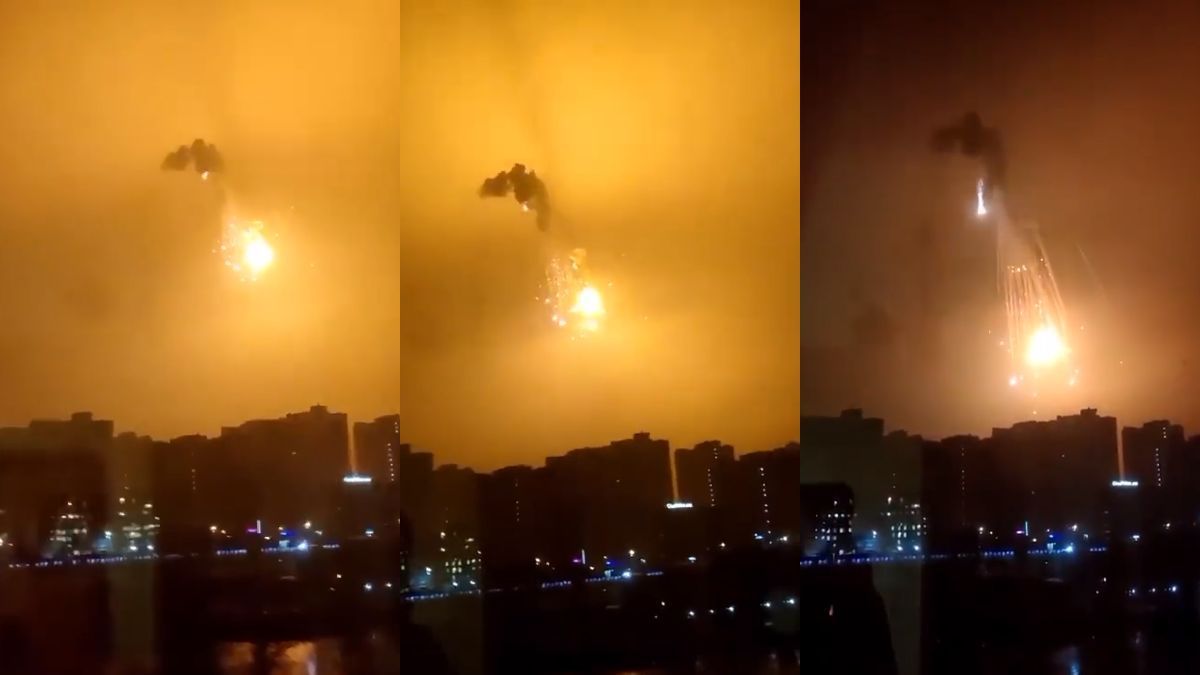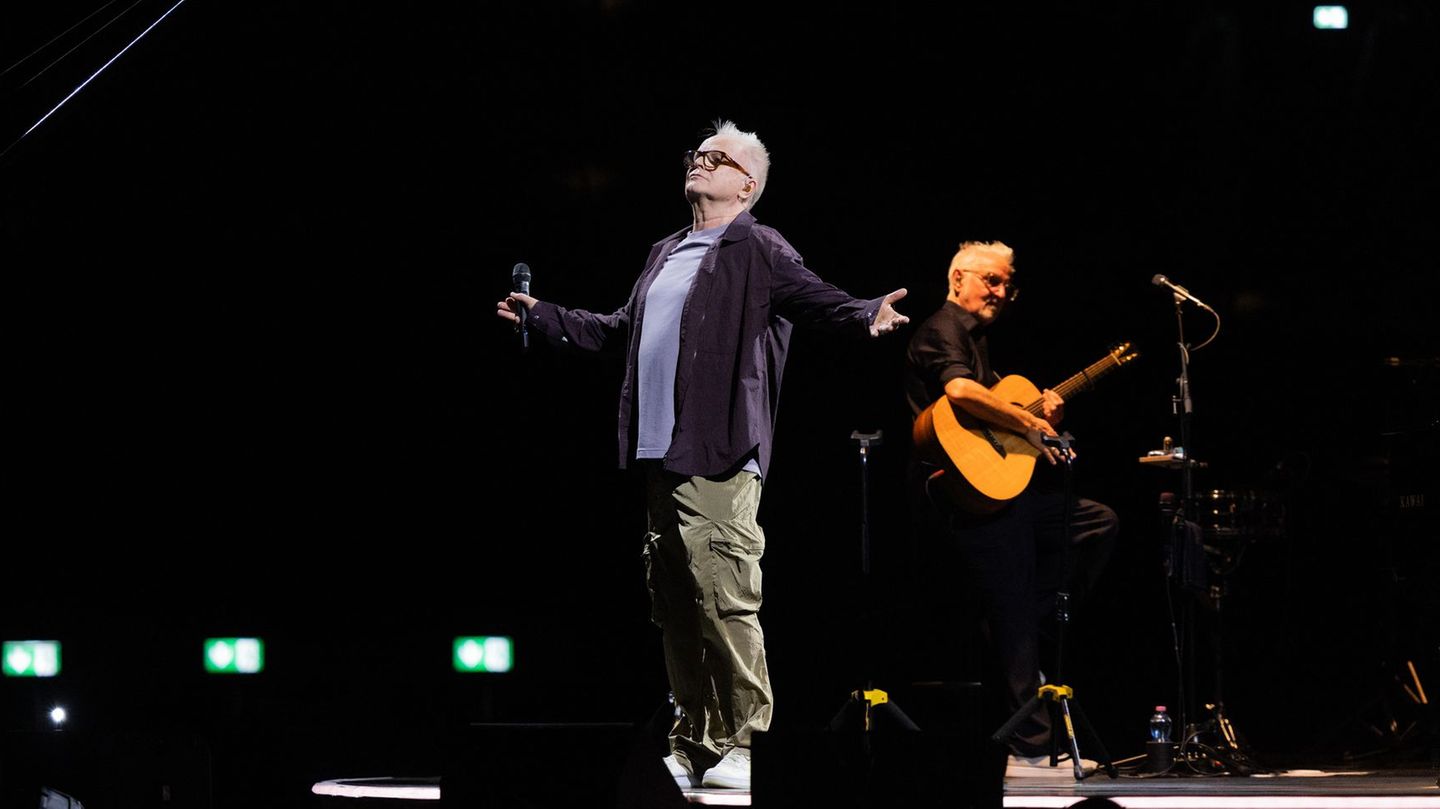At dawn, and just a short while after President Vladimir Putin announced it, the bombing warning sirens marked the beginning of the conflict: the military operation with which President Vladimir Putin said he seeks to protect the civilian inhabitants of the two regions separatists and Russian-speakers from eastern Ukraine, Donetsk and Lugansk, whose independence it recognized this week.
Russian attack on Kiev.mp4
The moment of one of the first Russian missile attacks on the capital of Kiev, Ukraine, repelled by the defense system.
Two loud explosions resounded early Friday in the center of Kiev, on the second day of the Russian invasion of Ukraine, an AFP journalist confirmed. “Attacks against Kiev with cruise or ballistic missiles have resumed. I have heard two loud explosions,” Ukrainian Deputy Interior Minister Anton Herashchenko said on his Telegram account.
https://twitter.com/ELINTNews/status/1497037495384555521
In a televised speech, Putin clarified that he does not intend to occupy Ukraine but to “demilitarize” and “denazify” the country and warned that any attempted intervention would have “consequences they have never seen.”
Just hours later there was a cataract of repudiation of his attitude and the announcement of sanctions: the American Joe Biden, the French Emmanuel Macron, the Italian Mario Draghi, the British Boris Johnson and the German Olaf Scholz they questioned Moscow’s decision, and announced and promised harsh sanctions, especially in financial, commercial, transport and energy matters.
Canada and the United Kingdom have already made these sanctions public, while the European Union, the United States and the G7 – which brings together the world’s main economies – announced them but did not detail them.
On Ukrainian soil, meanwhile, the death toll was still difficult to determine when President Volodimir Zelenski himself released a video detailing that “137 heroes” they had died and another 316 citizens were injured, according to the AFP and Sputnik agencies.
At the same time, an executive decree was released that ordered “general military mobilization” to counteract the invasion, a measure that will affect people subjected to “compulsory military service and reservists” and that will govern for 90 days in all regions of the country.
But Zelensky also took advantage of his appearance to complain about what he considered a situation of isolation of his countrybecause international support does not seem to go beyond words.
“The fate of the country depends on our soldiers and our people. Who is ready to fight with us? I don’t see anyone. Who is ready to give Ukraine a guarantee of NATO membership? Everyone is afraid,” he said. .
The president expressed himself “very grateful to all the states that help Ukraine in concrete terms.” And he added: “But in the concrete, not in words.”
When it made its appearance, it was already known that there were 74 military installations destroyed by the bombing in different parts of the country and the ground incursions launched by Russia.
Kiev, breaking off diplomatic ties with Moscow and vowing to defend itself, called for international help to force Moscow to respect peace amid what it called a “large-scale war” launched from the east, north and south of the neighboring country.
The Ukrainian Border Guard said Russian ground forces had entered the Kiev region, the capital, and Zelensky later confirmed this.
In response, NATO agreed to reinforce its air, land and sea forces on the eastern flank of the US-led military alliance, near the Ukrainian and Russian borders.
Ukraine’s Border Guard released images of what it said were Russian armor entering the country, and loud explosions were heard in Kiev, eastern Kharkov and southern Odessa and Mariupol, CNN reported.
Bombing warning sirens were also activated in Lviv, where the United States and other countries had moved their embassies.
Russian troops seized the strategic airport in the city of Gostomel, located near Kiev, and were fighting with Ukrainian forces near the Chernobyl nuclear power plant.
In both attacks, Russian troops entered from Belarus, which borders Ukraine to the north and whose border is just three hours from Kiev by road, officials said.
The Russian military claimed it destroyed 74 Ukrainian military ground installations, including 11 airfields, three command posts and 18 radar stations for anti-aircraft missile systems, the British newspaper The Guardian reported.
Russian forces also stressed that separatists from the east, from the Lugansk and Donetsk regions that Moscow recognized last Monday as independent states, are advancing and taking control of territories.
Initially, Kiev had recognized that more than 40 soldiers and a dozen Ukrainian civilians had died, but it was discounted that this figure would rise with the passing of the hours.
Although Zelenski – who announced martial law throughout the country – asked the population not to panic, mass evacuations began in different cities.
There was a UN request for neighboring countries to “keep their borders open” to welcome the exodus of people seeking “safety and protection.”
Zelensky also urged the international community to create an “anti-Putin coalition” to force Moscow to respect the peace.
“Ukrainian forces are engaged in fierce fighting. The enemy has suffered significant losses that will be even more significant,” the president also said, promising to “inflict maximum casualties” on the aggressor.
Biden announced that US soldiers will not fight in Ukraine but will “defend allies in the east and every iota of NATO territory,” and the alliance did not announce the sending of troops to the area either.
Putin, for his part, pointed out that what was happening was “a forced measure” because Moscow was left “no chance to act differently.”
Ukrainian authorities closed the airspace to civil aviation for security reasons, while Russia closed shipping.
The reactions to the beginning of the invasion were immediate. Biden, who called Zelensky to express his “support”, condemned “the unprovoked and unjustified attack by the Russian military forces” and assured that “the world will hold Russia responsible”.
“President Putin has chosen a premeditated war that will bring catastrophic loss of life and human suffering,” remarked Biden, for whom the invasion was “unprovoked, unjustified and without need.”
The head of the White House credited Putin with the idea of ”reestablishing the former Soviet Union.” “That’s what this is about,” he assessed, drawing attention to the fact that “there are not many people who are coming out to defend” the Russian leader.
In London, Johnson called Putin a “dictator” and announced sanctions before Parliament – including the suspension of Aeroflot flights – and Macron, who announced sanctions, considered the attack a “turning point” in the history of Europe.
The head of the German government, the Federal Chancellor Olaf Scholz spoke of “a dark day for Europe” and promised “full solidarity” with Kiev and Trudeau pondered the “severest sanctions, in the face of Russia’s reckless and dangerous military attack.”
The anti-Putin complaints also came from Russia itself: anti-war protests in Moscow and Saint Petersburg, called by social networks, left at least 1,500 detainees, according to the human rights NGO OVD-info.
The alert was turned red this week after Putin recognized the independence of breakaway Lugansk and Donetsk provinces, and the Russian Senate authorized the government to use military force abroad.
Source: Ambito
David William is a talented author who has made a name for himself in the world of writing. He is a professional author who writes on a wide range of topics, from general interest to opinion news. David is currently working as a writer at 24 hours worlds where he brings his unique perspective and in-depth research to his articles, making them both informative and engaging.




